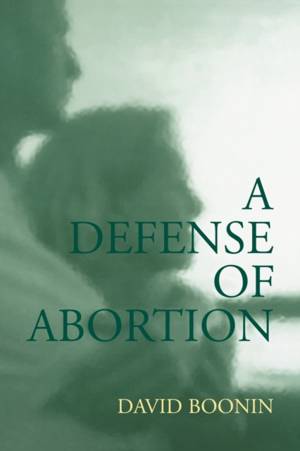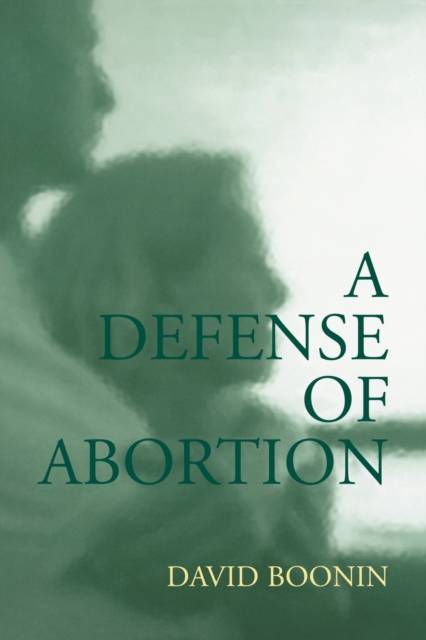
Je cadeautjes zeker op tijd in huis hebben voor de feestdagen? Kom langs in onze winkels en vind het perfecte geschenk!
- Afhalen na 1 uur in een winkel met voorraad
- Gratis thuislevering in België vanaf € 30
- Ruim aanbod met 7 miljoen producten
Je cadeautjes zeker op tijd in huis hebben voor de feestdagen? Kom langs in onze winkels en vind het perfecte geschenk!
- Afhalen na 1 uur in een winkel met voorraad
- Gratis thuislevering in België vanaf € 30
- Ruim aanbod met 7 miljoen producten
Zoeken
Omschrijving
The central thesis of philosopher David Boonin is that the moral case against abortion can be shown to be unsuccessful on terms that critics of abortion can and do accept. Critically examining a wide array of arguments that have attempted to establish that every human fetus has a right to life, Boonin posits that all of these arguments fail on their own terms. He then argues that even if the fetus does have a right to life, abortion can still be shown to be morally permissible on the critic of abortion's own terms. Finally, Boonin considers a number of arguments against abortion that do not depend on the claim that the fetus has a right to life, including those based on the golden rule, considerations of uncertainty and a commitment to certain feminist principles, and asserts that these positions, too, are ultimately unsuccessful. The result is the most thorough and detailed case for the moral permissibility of abortion that has yet been written. David Boonin is professor of philosophy at the University of Colorado. He is the author of Thomas Hobbes and the Science of Moral Virtue (Cambridge, 1994).
Specificaties
Betrokkenen
- Auteur(s):
- Uitgeverij:
Inhoud
- Aantal bladzijden:
- 368
- Taal:
- Engels
- Reeks:
Eigenschappen
- Productcode (EAN):
- 9780521520355
- Verschijningsdatum:
- 4/11/2002
- Uitvoering:
- Paperback
- Formaat:
- Trade paperback (VS)
- Afmetingen:
- 153 mm x 232 mm
- Gewicht:
- 517 g

Alleen bij Standaard Boekhandel
+ 97 punten op je klantenkaart van Standaard Boekhandel
Beoordelingen
We publiceren alleen reviews die voldoen aan de voorwaarden voor reviews. Bekijk onze voorwaarden voor reviews.









